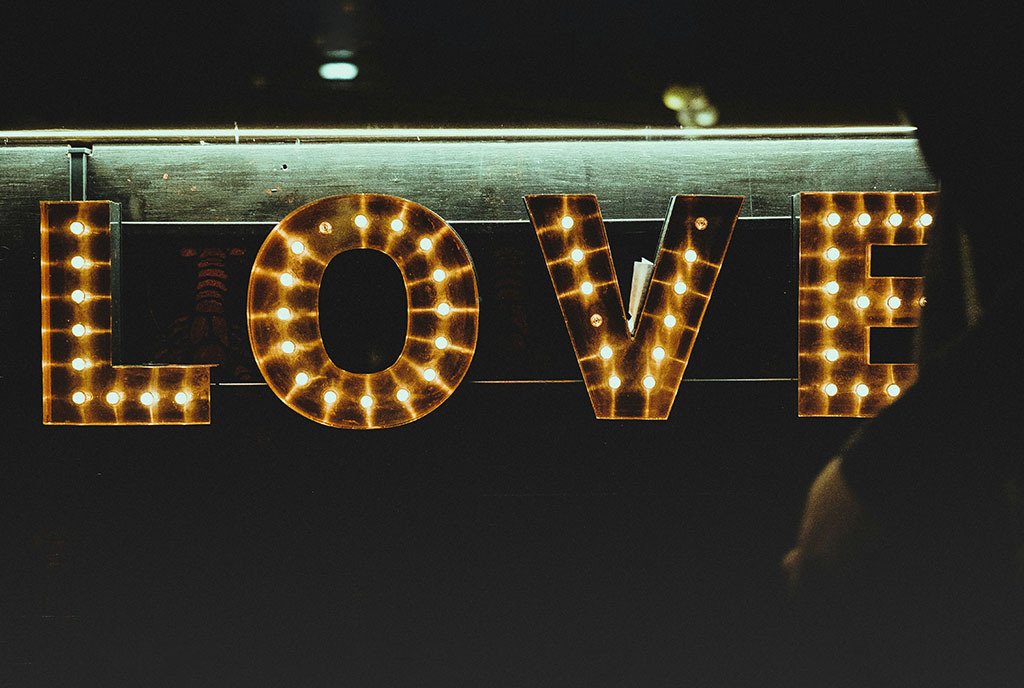
Within social justice and movement building work, love is frequently mentioned but rarely defined or operationalized. In this three-part series on the Critical Theory of Love framework, author Durryle Brooks aims to fill the gap. By exploring the social function of love, the framework seeks to reclaim love as a radical and transformative force, replacing an uncritical love that perpetuates White supremacy, racism, and other forms of oppression. The CToL framework is presented as a means to disrupt these oppressive dynamics and fuel collective healing and movements for social justice.
At its core, a Critical Theory of Love (CToL) invites us to rethink how love is defined and how it influences our daily lives. This theory challenges us to explore whether our current understanding of love supports or undermines the pursuit of social justice.
A critical interrogation of love might ask: Is the current everyday notion of love strong enough to carry the weight of hundreds of years of systemic oppression? Does it equip those who are historically marginalized and maligned with the tools to resist erasure and dehumanization? And, more critically, how must it operate to fuel personal and social transformations for our individual and collective good?
By examining the relationship between love and social transformation, we can discover new ways to reshape love into a powerful tool for social change. However, before we can reconceptualize love, we must start with what we know about it.
The Limitations of Normative Everyday Notions of Love
When I first started on this path to understand the relationship between love and social transformation, I was stumped. The frames of reference for love that I was introduced to were based on religion or pop culture, leading them to be often traditional, heteronormative, classist, patriarchal, and paternalistic.
Growing up in African Methodist Episcopal and Baptist churches, emphasis was placed on the idea that “love is patient, love is kind,” and that love was only between “a man and a woman.” In media—books, movies, and music—the notion that love requires us to “risk it all” or is something that we should “fall into” was prevalent. These portrayals are dangerous because they focus almost exclusively on the individual level, which is a function of White supremacy as an ideology.
The insistence that love should only be behind closed doors or only for certain kinds of people limits its liberatory possibilities. While love could be this, it is also much more. Love always had the capacity to be transformative, but it was relegated to the home, which made it impossible for many of us to even conceive of the notion that love is deeply political and that it could resemble protesting in the streets for justice.
This should be no surprise, given that in the United States love is often described as an emotion or a feeling directed externally (such as family and romantic partners). The Merriam-Webster dictionary defines love as a “strong affection for another arising out of kinship or personal ties” and “attraction based on sexual desire: affection and tenderness felt by lowers,” among other definitions.
As a Black queer person, I recognize the limitations of these normative everyday notions of love, especially when confronted with the violence of homophobia and heteronormativity. These forces render me and others like me invisible, undesirable, and unlovable. In turn, love has become weaponized—used as an instrument of oppression. To effectively dehumanize someone, society not only renders them as objects but also makes them unlovable through social, political, institutional, and cultural practices that justify violence and erasure.
The Commodification of Love
The limitations of normative everyday notions of love are not new, nor is the call for it to be reconceptualized. The urgency for a different and more socially conscious love has always been present.
Erich Fromm, the early 20th century author and critical theorist, argued in his book The Art of Loving that the apparent abundance of love in US society is an illusion that distracts us from the deep lovelessness that our society feels because we cannot create love ourselves, within ourselves, or in our communities. In another work, To Have or To Be, Fromm wrote, “To acquire, to own, and to make a profit are the sacred and unalienable rights of the individual in the industrial (and capitalist) society.”
Love must be rooted in justice to rectify what racism and capitalism have stolen from Black people and this entire country.
He suggested that love had become commodified—a product that can be bought, sold, and owned, subject to the same market forces as any other item, making it more of a status symbol and another form of cultural capital.
When love is bound to heteronormativity, constructed as a finite resource, and marketed to us using European beauty standards, it becomes a luxury good reserved for those who can “afford” it. This not only limits who can access love but also incentivizes the adoption of oppressive standards (both cultural and social).
In All About Love, bell hooks also critiques these limitations, reminding us that the lovelessness we collectively feel is a function of a system that she refers to as “this imperialist, White supremacy, capitalist patriarchy.” She warns: “The abandonment of a discourse on love…laid the groundwork for the undermining of all our efforts to create a society where Blackness could be loved, by Black folks, by everyone.”
Through processes of domination and control, the normative construction of love many of us live with is contaminated because it is manufactured in the same systems that intend to break us and then profit from our brokenness.
The Impact of Manufactured Narratives
What do these manufactured narratives of love suggest about who is valued and who is not? Critical media and cultural studies scholars—such as Stuart Hall in “Encoding and Decoding in the Television Discourse” and Representation, as well as Michel Foucault—have found that the proliferation of certain images or media messages and discourse broadly shape our social perceptions and influence our social realities.
Sign up for our free newsletters
Subscribe to NPQ's newsletters to have our top stories delivered directly to your inbox.
By signing up, you agree to our privacy policy and terms of use, and to receive messages from NPQ and our partners.
In Critical Dialogues in Culture Studies, Hall explains that ideology consists of “mental frameworks—the languages, the concepts, categories, imagery of thought, and systems of representation—which different classes and social groups deploy in order to make sense of, define, figure out and render intelligible the way society works.”
These frameworks, embedded in symbols and cultural practices, make us accept the current social order as “natural” and, in some ways, “inevitable.” Institutions like places of worship, schools, families, the medical system, and the media reinforce narrow definitions of love, leading us to believe that the most important form of love is individual and romantic bliss, even at the expense of our mental health and collective liberation.
Love as a Tool of Oppression
The normative notion of love operates as a tool of oppression and social control, influencing our desires and aspirations to accept White supremacist, cisgender, and able-bodied norms. It silences and obscures the call from Black and Brown movement leaders, social justice scholars, and practitioners who recognize that this narrow understanding of love is inadequate for achieving justice.
This reimagined love calls us to radically change how we connect with one another, fostering relationships rooted in mutuality, accountability, and holistic justice.
Much of Dr. King’s work on love, including his seminal book Where Do We Go From Here: Chaos or Community?, was grounded in the struggle for racial justice, believing that love must be rooted in justice to rectify what racism and capitalism have stolen from Black people and this entire country.
hooks, in All About Love, expands on this idea by offering a new definition of love: “To truly love we must learn to mix various ingredients—care, affection, recognition, respect, commitment, and trust, as well as honest and open communication.”
She emphasizes that love requires mutual respect and care and asserts explicitly that love and abuse cannot coexist.
Erich Fromm, in The Art of Loving, views love as a process of engagement: “Love is an activity, not a passive affect; it is a ‘standing in’ not a ‘falling for’….If you love without calling forth love, that is, if your love as such does not produce love, if by means of an expression of life as loving person you do not make of yourself a loved person, then your love is impotent, a misfortune.”
This idea that love is an active choice challenges the normative love script, instead favoring love as something we intentionally build and cultivate within ourselves and others.
We must cultivate the skills of relationship building and maintenance as essential elements in our justice work.
Love as a Political Project
To serve as the social intervention we desperately need, love must be reconceptualized with healing and wholeness at the forefront. This reimagined love calls us to radically change how we connect with one another, fostering relationships rooted in mutuality, accountability, and holistic justice. It challenges us to love people—not their titles, statuses, or roles.
In practice, this means:
- Refusing to excuse or protect those who commit harmful acts, even within our own communities
- Rejecting silence, conformity, or compliance as a prerequisite for love
- Embracing love as a force that heals and uplifts, rather than one that demands sacrificing our dignity
Paul Tillich, in Love, Power, and Justice, describes love as “the drive towards the unity of the separated.” This underscores its role in bridging divides, fostering connections, and healing as cornerstones of transformative practices. We must cultivate the skills of relationship building and maintenance as essential elements in our justice work.
Healing as a Collective Endeavor
Love is a political project because it creates transformative possibilities by recognizing, honoring, and affirming each other’s dignity. When we are loved well—deeply and holistically—we can more easily access our power to transform ourselves and everything we encounter. This is why a critical conceptualization of love is so dangerous to the status quo: Healed people heal people and love, at its core, should heal.
The lack of a critical discourse of love isolates us, keeping us trapped in individualism and unable to fully access our collective humanity. Without a deeper discourse on love, we risk overlooking the interconnected realities that bind us, leaving us vulnerable to the limitations imposed by oppressive systems and allowing the cultural imperialist project of colonization to continue unchecked. These consequences are far-reaching. They impact our sense of agency, leading us to believe that we can trade or negotiate our way to being “loved.” They damage our sense of self-worth by making us overvalue others’ ideas of love at the expense of our own. They erode our self-esteem, forcing us to measure our personal worth by whether others deem us lovable, even in the most hostile conditions.
To advance any social justice movement dedicated to upholding the dignity and self-worth of all people, we must critically examine and reconceptualize love. This reimagined love is not confined to romantic or familial relationships but extends to how we engage with our communities and society.












